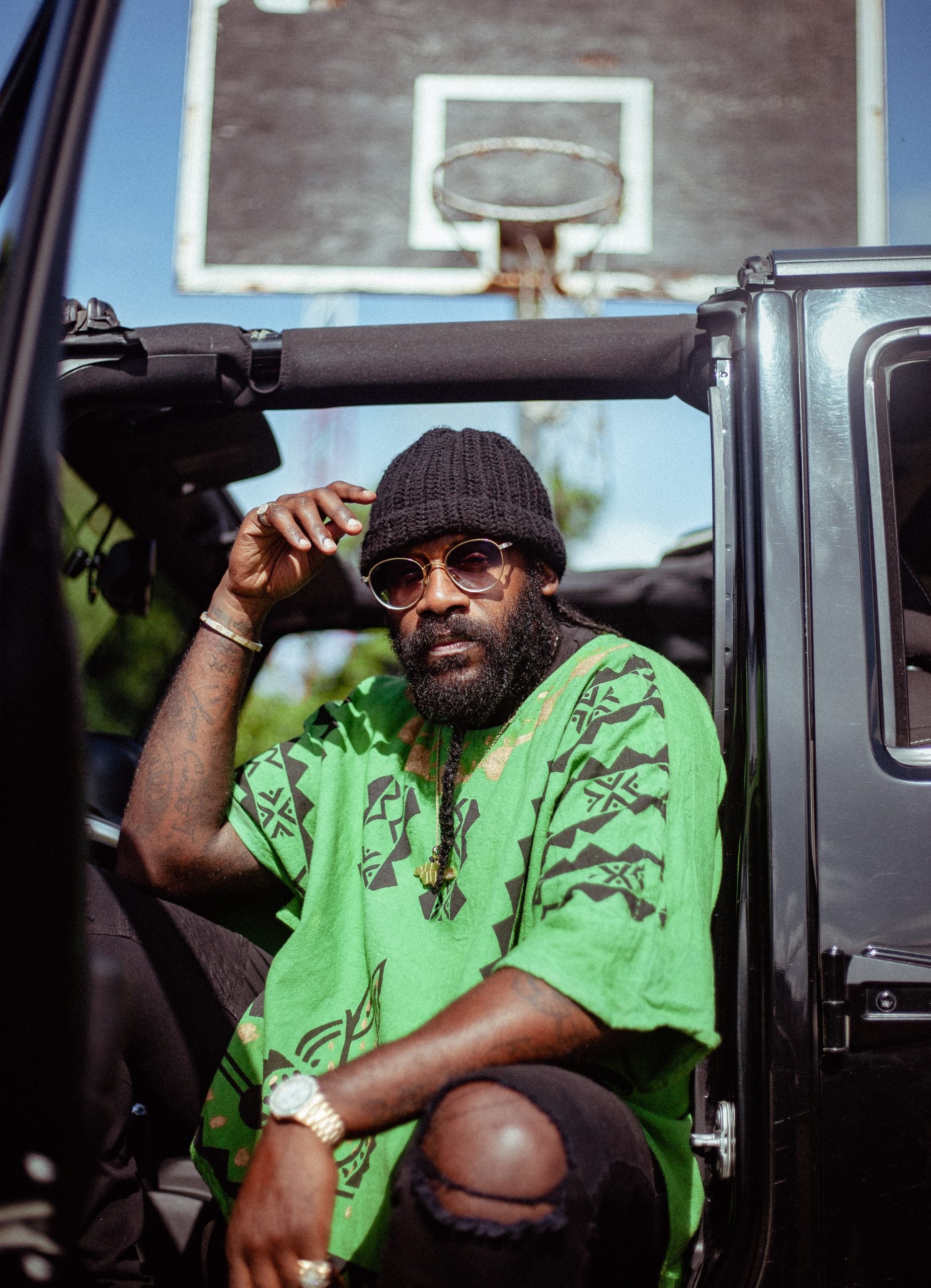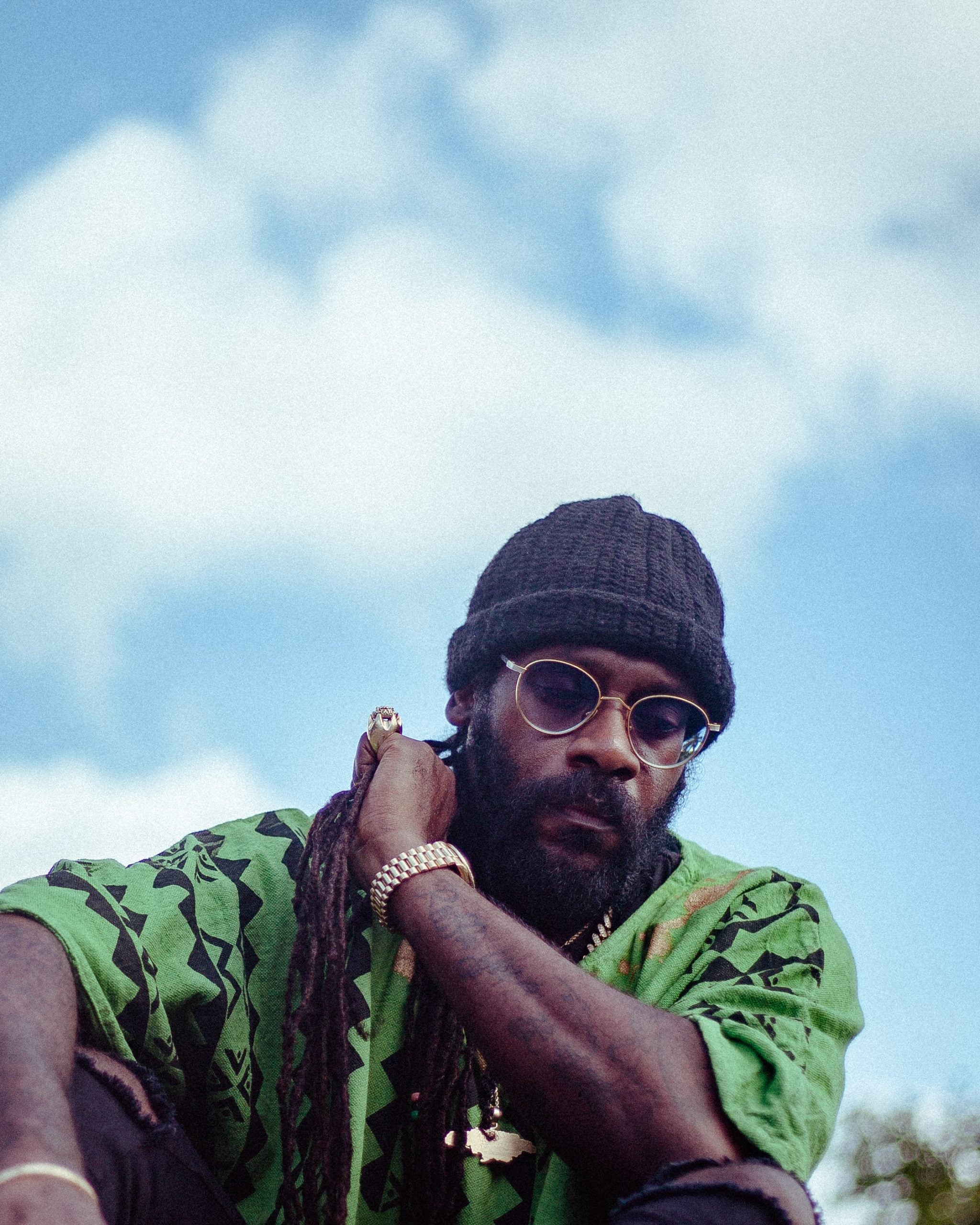As we continue to endure the pandemic, staying inside has yielded plenty of opportunities for reflection as we continue to take things one day at a time. We’ve also made sure to reach for the necessary tools that help us get by—with music being one of them.
For reggae artist Tarrus Riley, he responded to being in quarantine in his Jamaican home and witnessing the uncertainty of the world through what he knows best—his craft. Fondly known as “Singy Singy,” the legacy of Jimmy Riley released Healing, his first full-length album released in sixyears, providing commentary and encouraging words on the time of COVID-19.
Despite the limitations pandemic restrictions imposed on the recording process, Tarrus produced 12, timeless tracks with co-production by Shane Brown and legendary saxophonist Dean Fraser. With the help of fellow Jamaican heavyweights Shenseea, Konshens, Dexta Daps, Teejay and Rvssian, Healing is a timely and spiritual score to these times that you didn’t know you needed.
When we touched base with Tarrus to talk all things Healing in a phone conversation, he noted this release is a full-circle moment for him, reflecting on his mother being a nurse and his late father, a singer. They, too, healed people through their respective gifts, so Tarrus in turn continues to carry that torch with this new album.
This interview has been edited and condensed for clarity and length.
ESSENCE: What was a challenge you faced, if any, while producing Healing during the pandemic?
TARRUS RILEY: We faced strict time regulations when I was doing the album. There were curfews set in place where you had to be off the road at a certain time, so we approached it like drill sergeant work—you had to get up, hurry to the studio and come out before 5 or 6 o’clock because we didn’t want to get into any problems with the police. But thanks to technology, we could send tracks to people and they could send back things. The artists who collaborated with me went above and beyond. They would help me sing background vocals and pitch in where they could because we couldn’t have the big studio sessions with harmony singers. But this time I had to do it—I even had Shenseea do it with me too. Dexta Daps helped us in the studio as well, where we all put our creative energies forward.
ESSENCE: It seemed like the collaborators you tapped for the album were intentional.
RILEY: I really appreciate them, we had fun making the music. I called the album Healing, but even that [process] was just as healing for me in a sense because music is something that we love; but it’s also the work. With the world being so undecided and scary outside, just being there with my friends and making music took our minds off of the distressing parts. It wasn’t a lot of us in the studio due to social distancing, but we made the best of each other’s time.
 Tarrus Riley | Photo: Sameel “Samo Kush I” Johnson
Tarrus Riley | Photo: Sameel “Samo Kush I” Johnson
ESSENCE: Have you noticed how we consume music differently during these times? What’s your view on the role of the artist, and do you think we as listeners take artists’ impact for granted?
RILEY: Music is like vitamins today. If you’re inside, you can only watch Netflix for so long. When you’re exercising you need music, and even with movies you’re watching there’s a soundtrack. The importance of music right now has increased by a million. People need music, and there’s a cool way to receive it now.
You can’t tell people how to appreciate things, you just have to hope that they do. People take things for granted when they see it a lot, or when they have easy access to it. For example, I can’t travel now, so I can’t tour now. So for everyone who’s been to one of my concerts, they know the value and already can’t wait to go again, because they would have it at their disposal so much before.
Sometimes when things are scarce, we value them more.
ESSENCE: You’ve said the songs on Healing were made in real-time, by real people. Can you expand a bit on your songwriting approach for this project?
RILEY: When you write a lot of music, sometimes you write about different experiences, things that we’ve been through, and things that we want to go through—just different outlooks on life. But this music was written in real-time, by real people—meaning every song I’m singing is about the now, about today. And that’s the first time I’ve done that on a complete album.
 Tarrus Riley | Photo: Sameel “Samo Kush I” Johnson
Tarrus Riley | Photo: Sameel “Samo Kush I” Johnson
ESSENCE: The opening track, “The Week/Weak” was relatable with the range of emotions one can experience while in quarantine. It’s a great example of artists making sense of what we’re having trouble putting to words.
RILEY: It’s crazy. The things that you go through during the week, is what makes you weak. One day you’re happy, the next day you’re sad. Monday you’ll go through something, but by Tuesday you might feel a little better. In the end, there’s a time for everything—a hello, a goodbye. There’s a time for every kind of mood.
ESSENCE: What are some takeaways you want listeners to have with this album?
RILEY: I wanted to give people music in a stressful time. I was worried about the pandemic like everyone else, so rather than go crazy, I was writing music. One song turned into two songs, then three and it formed into an album. “Healing” is the soundtrack of what we’re going through. There are fun vibes on it—not everything is too serious. It’s people music, as I’m a people person.
I learned how simple things are blessings and not be so hard on myself. The same things I want for myself, I want for people. We need to make the best use of our time—so whatever you’re doing, make sure it’s what you want to be doing. Because you can’t get back your time.
The post Reggae Artist Tarrus Riley’s New Album Gives Needed Solace During These Times appeared first on Essence.
